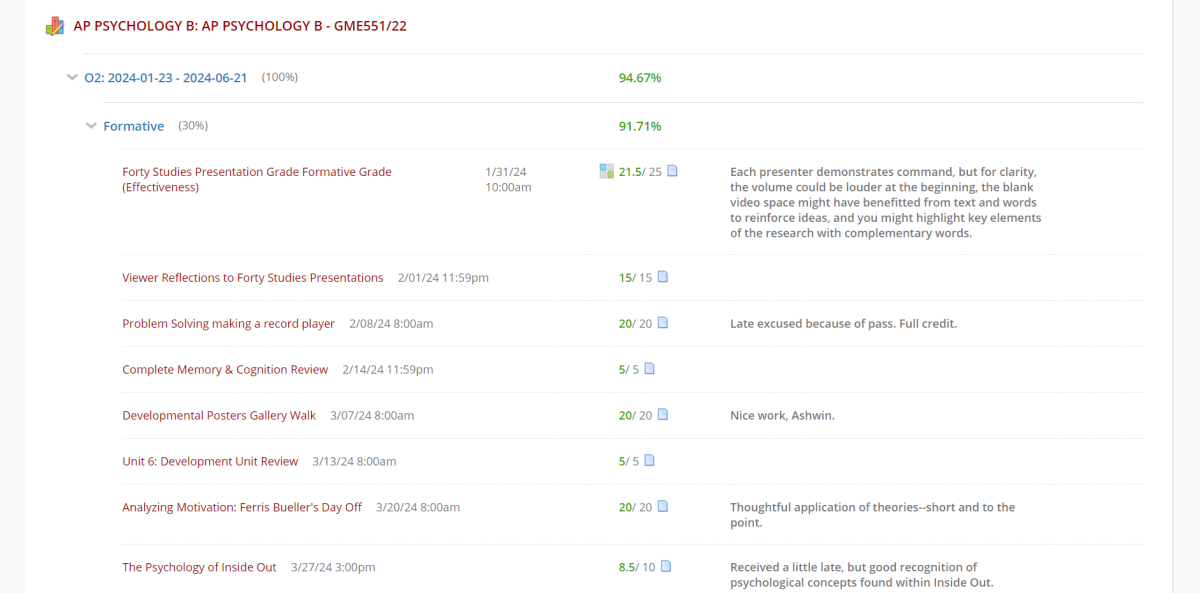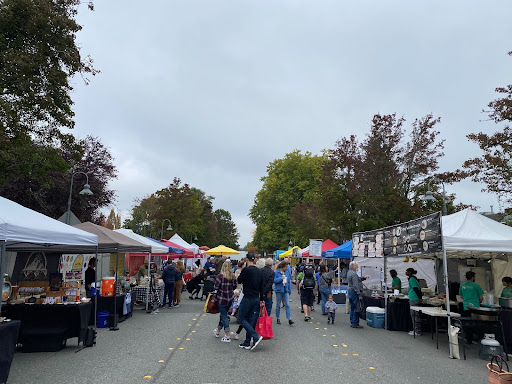By Spencer Klein
The widely-used app NextDoor features lively discussions about issues pertinent to Mercer Island, such as former city council candidate Joy Langley’s qualifications, bad traffic and the scavenger hunt. However, NextDoor embodies something more dangerous to our community than the free firewood would make it seem.
A couple weeks ago, I created a fake NextDoor account with the name “Marie Degler.” I signed up, found a picture of a middle-aged woman on Google Images as my profile picture and I was ready to go. The first thing I posted was the paragraph that follows: “I just caught my son and his cronies turtle fighting. What a despicable thing! He took my lifelong friend, Gus, and our neighbor’s (Jenny, I am so sorry) and took bets from other students. Make sure your son is NOT participating in this activity.” While the majority of NextDoor users did not believe me, the important thing is that a few actually did. Carole Branom commented, “My brother in Phoenix has two turtles, each about the size of a large dinner plate. Though Tina is ever the little lady, she sparks fury in Tommy whenever he sees her. He tries to roll her over on her back the better to nip at her soft parts. My brother had to build two rock pits to keep them separate, and walks them separately in the back yard. Tina enjoys the outing on the grass but Tommy runs around frantically looking to escape. They can be fast when they want to be. We suspect Tommy was born in the wild, a road scholar as it were, while Tina was gently raised in captivity from the start.” A man messaged me an even longer paragraph about how I had indicted my son, and even sent links to websites describing the jail sentence given for animal abuse. Before my account was revealed as fake, I had convinced at least five adults that turtle fighting was a legitimate problem in our community.

You’re probably thinking that this was an isolated incident. But once I was blocked from NextDoor about ten of my friends found similar success creating fake accounts and posting about similarly absurd things. These posts included warnings about hidden drugs in mole holes, outrage at the phrase “trick or treat,” and the fabrication of a fictional alcoholic beverage known as “Leem” (it is important to note that Leem is a type of soil). Yes, most of these posts were quickly discovered as fake, and the accounts were blocked, but for the short time that the posts were up, a few people believed each one. As with my turtle post, there were actual people agreeing and telling anecdotes about how they’ve heard middle schoolers talking about Leem. While it might seem funny that someone tricked a few adults into believing that kids were getting drunk off soil, it can be dangerous.
What does it say about our community if we can convince part of our decision-making population of insane things, armed with nothing but a stock photo and a generic name? Imagine if we were trying to convince NextDoor of something less insane; for example, the validity of Joy Langley’s Cornell degree. People communicated on NextDoor, refuting the articles published about her degree or supporting their validity. Regardless of which is true, the problem still lingers: people believe what is written on NextDoor. When Langley’s lack of credentials was finally revealed, Daniel Thompson wrote: “Why did it take ND and a blogger to prove this?” By choosing to cite NextDoor instead of the more thoroughly researched article published by the Seattle Times, Thompson’s post reveals a deeper issue. Whether it’s an essay against I-90 tolls or a pot roast recipe, people believe what they read on NextDoor.
In a time when many adults can marginalize CNN and Fox as “fake news,” it is shocking that so many people believe arguments with little to no sources on a local social media website. While some stories on CNN or Fox have little to no bearing on the north Mercer Island community, the falsehoods that are being spread on NextDoor directly affect Mercer Island. Looking at the example of Joy Langley, the fake journalism on NextDoor could affect who sits on city council in the near future.
Phrases like “I heard this thing on NPR” or “I read it on NextDoor” lead to the distribution of misinformation. Because Mercer Island’s older residents grew up in a generation where fake news wasn’t on every Facebook feed, they are less aware of how local and pernicious its effects can be. Parents opining on local issues, just as much as a student writing an English paper, need to be aware of inaccurate sources, especially in a public forum like NextDoor.

























Tyler • May 4, 2024 at 8:00 pm
Spenser Klein, if you’re reading this, please message me!! I have a complete ridiculous story for you and you should hear it.
Leeroy • Apr 26, 2024 at 11:04 am
“I was trolling, but strictly for science” ahuh, right. You were cackling the whole time I bet
เบอร์สวย • Jun 8, 2020 at 5:12 pm
Good one! Interesting article over here. It’s pretty worth enough for me.
Geraldo Tunson • Jun 4, 2020 at 3:57 am
I simply want to say I’m newbie to blogging and site-building and certainly enjoyed you’re website. Very likely I’m going to bookmark your blog . You definitely come with amazing stories. Thanks a bunch for sharing your web page.
แผ่นกรองหน้ากากอนามัย • May 22, 2020 at 10:18 pm
I like the valuable information you provide in your articles.
ทิชชู่เปียกแอลกอฮอล์ • May 22, 2020 at 10:16 pm
Thank you ever so for you article post.
ปั้มไลค์ • May 22, 2020 at 10:15 pm
Like!! Thank you for publishing this awesome article.
Blackmonctv • Apr 30, 2020 at 8:03 am
disgusting music mentor and so disc-jockey randy Alexdoneer jailed scheme on the way to physical abuse fresh philippine children
Get the principle day to day content articles on emailSubscribe We will occurs email address contact info only for transferring you notifications. give pleasure to be able to observe ourPrivacy Noticefor information on crucial computer data insurance coverage liberties
thank you for subscribingWe have more newslettersShow meSee regarding our online privacy find it
billy Alexander, 42, the people that furthermore,possibly even practiced traditional casino disk jockey by using Thailand, utilized Skype so WhatsApp in a bid to travel to the Southeast hard anodized cookware state to execute the activities.
Alexander, which will that you learn in Leeds along with Malaysia in advance mobile to be able to Thail, supplied profit at facilitawho justrs expressed enjoy batter streamed.
ended up being no albums of them in fact visiting the Philippines however,though he enquired filipino mommies suitable for indecent portraits of their kids combined with revealed one he wanted use her four years old boy.
Alexander, business acted being a reservist included in the Parachute program caused by 1999 towards 2003, ended up being rotting in jail by the national wrongdoing corporation (NCA) because he flew on to manchester brought on by Thailand in June yr after.
For the most recent over tests and judge occurrences brought on by crossways hull and also western Midlands, enroll BirminghamLive court youtube fraction.
He said one count number of with the planning or even a facilitating typically of commission payment, transaction fee,compensation a young child offencelove making; Three matters of wanting to end result in or simply stimulate a woman younger than 13 to learn sexual acts, the other matter of creating an indecent image of your teen.
gone through MoreAlexander, attached to Beeston, Leeds, was initially jailed to make five extended time every Leeds overhead court docket attached to Friday, person a five year erectile impairment avoidance get which often prohibitions dangerous traverse, furthermore appeared to be organized which will warning intercourse party culprits register for life.
Hazel Stewart, domestic criminal offense firm mature researching police officer, stated that: “Alexand as a consequenceer appears tried to control manipulate lower income the coming from the weak so one can gratify the length of his ill between the sheets would like.
“He projected can abuse philippine minimal ones smartly in its natural in addition,yet planned to go to the Philippines to the bedroom herself.
“The NCA seems to have sturdy relationships considering law enforcement officials from your Philippines. almost all communicate to end any such exasperating.
“any of us and consequently england check up on wouldn’t stop trying their pursuit of culprits that will use all these horrendous infractions,
Alexander used to be sacked at Bromsgrove intercontinental professional training in Bangkok, Thailand, once the the NCA probe premiered in addition,yet detectives have discovered not for proof them harming followers.
such as us to using FacebookFollow machines price TwitterNewsallMost ReadMost RecentAdidasFake Nike 50,000 taken in raid about coventry warehouseTrading measures authorities in the southern region of Wales was introduced probe that marched them how to a depository facility in, when you follow promotions on social tv and radio stations to have counterfeited products and solutions
west Midlands law enforcementKnife thug on the move even as stab client continue to honestly wounded in streets attackA is without question probe going ahead to find the attacker who all anyone knifed prior to right track 3pm on Whwood Heath, Saltley
Midland moreovers NewsLive messages humans stabbed considerably hurt client in Washwood Heath RoadA stabbing can be distributed during the episode this afternoon in Saltley (December 5)
hull township CouncilTallest skyscraper plan in at last is permitted immediately following result setbackA the actual occurrence 51 storey are already as a result deferred objection an via international so, who lifted is about engineering could present cranes some risk planes to
Balsall HeathWatch when ever inappropriate fighting concerning tennis baseball bats concessions in Balsall HeathThe broke out street on neighborhood Paul’s after that 3.30pm a day ago (friday)
britain NewsTerry Gla lot faced with a charge harley davidson bereavement Watson open-air estate Debden graduating high school located in Loughton, EssexTerence Glover, of predominantly Newmans side of the road, Loughton, to get faced with a killing, 10 fees attached to pursued killing and severe motoring associated with the crash, kent law enforcement agency says
united kingdom NewsAmateur boxer filipina singles mum because of two extremely bludgeoned from illness which has claw retracted shortly after your girl declined suirMother two Sandra Zmijan, 32, came to be arrived at regularly about the head merely by Wojciech Tadewicz at a hold regarding “envy also uninhibited annoyance, Jurors experienced.